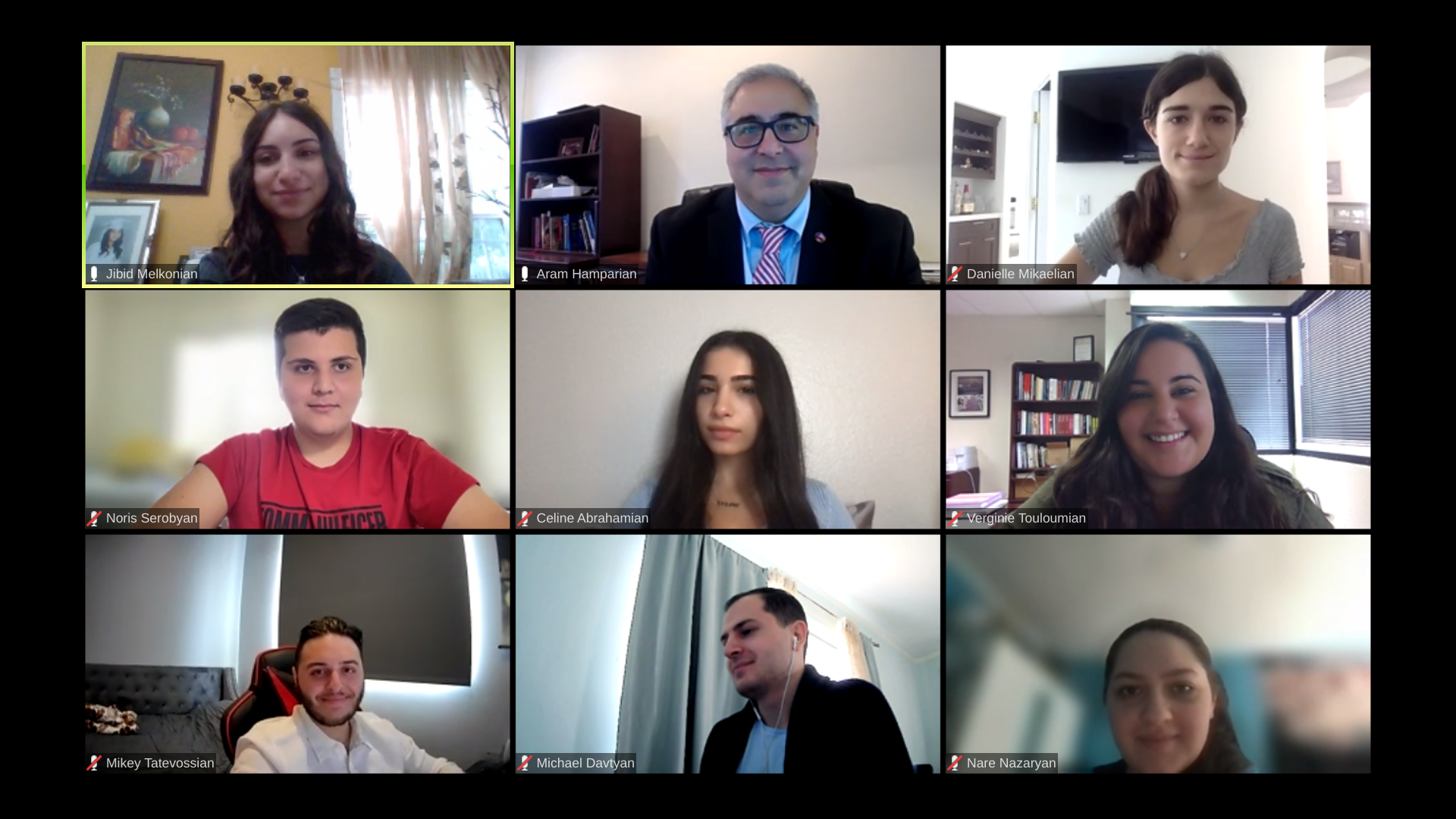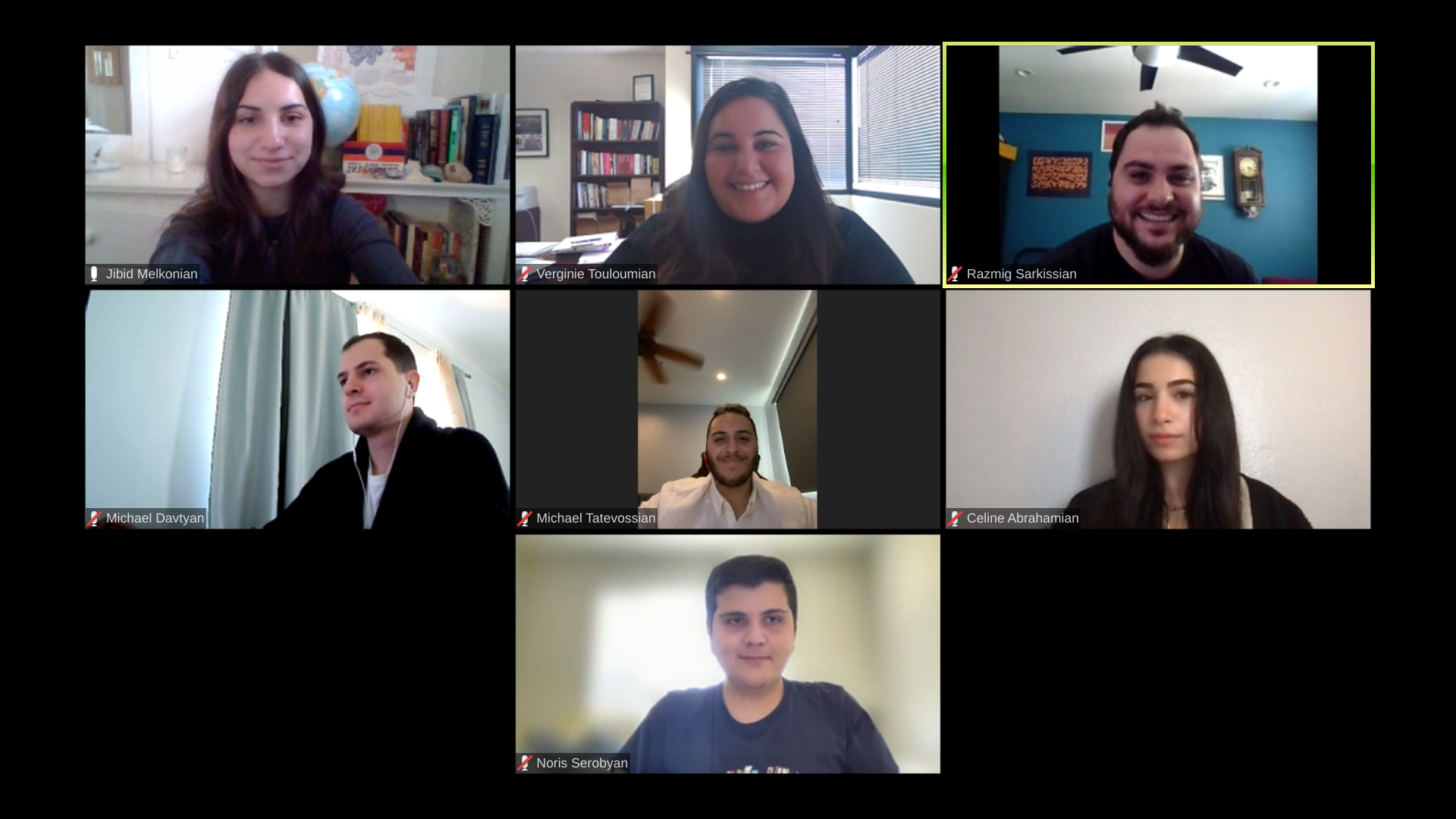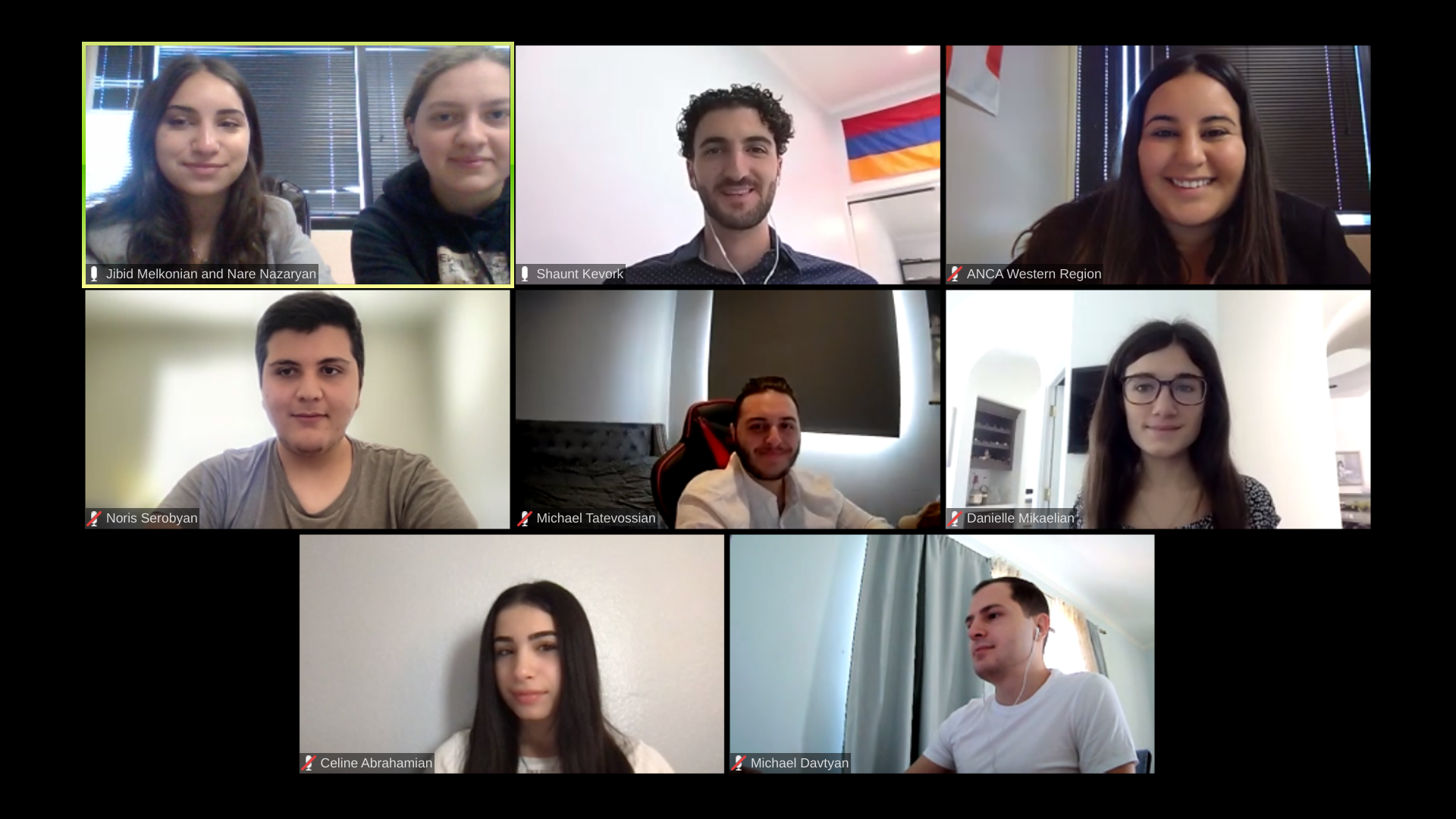ANCA-WR Fall 2021: Week 2
Jibid Melkonian
To start off the second week of the program, on Tuesday, October 5, interns met with a director of a prominent human rights organization who explained the organization’s work on human rights in the United States and around the world.
 On Friday, October 8, interns had the privilege of meeting Aram Hamparian, Executive Director of the ANCA, who imparted an informative lecture on the history and ideology of the Armenian National Committee of America. Hamparian began by explaining the history of the Armenian-American diaspora, which skyrocketed about 140 years ago when Armenians began settling in places like Worcester, Massachusetts and Fresno, California. Those early immigrants of the 20th century, while harboring a strong sense of Armenian identity, were not equipped to fight legislatively. Many, such as Vahan Cardashian, began to seek sympathy from the American government. The first American humanitarian experiment abroad was to help Christians being persecuted throughout the Ottoman Empire. While this initiative was successful in helping the wounded Armenian people, once our land was partitioned between the Ottomans and Russia, Armenia found itself on different sides of political issues in the region. The Armenian diaspora has always been pessimistic during hardship, no one thought Armenia could become independent. We were told to merely support the Republic, not fight for ourselves.
On Friday, October 8, interns had the privilege of meeting Aram Hamparian, Executive Director of the ANCA, who imparted an informative lecture on the history and ideology of the Armenian National Committee of America. Hamparian began by explaining the history of the Armenian-American diaspora, which skyrocketed about 140 years ago when Armenians began settling in places like Worcester, Massachusetts and Fresno, California. Those early immigrants of the 20th century, while harboring a strong sense of Armenian identity, were not equipped to fight legislatively. Many, such as Vahan Cardashian, began to seek sympathy from the American government. The first American humanitarian experiment abroad was to help Christians being persecuted throughout the Ottoman Empire. While this initiative was successful in helping the wounded Armenian people, once our land was partitioned between the Ottomans and Russia, Armenia found itself on different sides of political issues in the region. The Armenian diaspora has always been pessimistic during hardship, no one thought Armenia could become independent. We were told to merely support the Republic, not fight for ourselves.
As the United States found itself gripped by protest and outspoken opposition, the Armenian community realized we must always take our side, putting ourselves at the forefront of the public’s mind. Armenians didn’t protest in America until 1965, they thought they must be good Americans and not make any noise. This is common amongst ethnic minorities who do not feel comfortable protesting, believing they must keep their heads down and work hard. As time went on, we began lobbying and organizing our community. This meant registering voters, inviting legislators to events, and donating to campaigns. We reached out to retired diplomats and legislators for support, and began building a name for ourselves. The notion of asserting and defending our rights is relatively new for us, and while we have always cared, it is difficult to teach people what to do about their concerns. While Armenians viewed themselves as guests in America, we realized we accomplish a lot more together, as one. Now, Hye Tahd has become woven through the fabric of Washington, D.C., and the community’s efforts were finally recognized with the passing of the Armenian Genocide resolution. This fight was never partisan and always remained our issue, not a topic which can be used as a bargaining chip for politicians.
Tuesday, October 12, Razmig Sarkissian joined the interns to explain how the Divest Turkey campaign came to be. Razmig was an active member of the AYF who played an instrumental role in the campaign while attending UCLA where he was interested in political lobbying and legislation. As the Armenian community was preparing to mark the centennial of the Armenian Genocide, the AYF wished to engage in long term protest, not just one day of commemoration. It is important to remember that the Armenian movement did not happen in a vacuum. The movements of the ‘60’s and ‘70’s inspired us, but community elders did not want to associate with the taboos surrounding outspoken criticism.
In 2014, Razmig and his friends, inspired by anti-apartheid and pro-Palestine movements across UC’s, began looking into how much money UCLA invests into Turkey. They found that UC employees receive pension funds from the government of Turkey. Despite rising costs, tuition does not solely cover the pensions of former employees. Along with other financial avenues, UCLA, among others, buys stocks or shares to have enough money to pay retirees. It is common for emerging countries to sell their debt on the world market. Since these countries are emerging, they guarantee they will pay their debt, and in turn, those who bought their debt, such as UCLA, will receive loan payments. To make matters worse, students found that UCLA had invested a whopping $65 million into Turkey. This was the smoking gun; the AYF was able to make students complicit in modern Turkey’s actions because it was their tuition money being invested. AYF members who attended UCLA, such as Razmig, began seeking the attention of community and UCLA figures who would support their legislation. They reached out to their student body, asking them to push the UCLA board to halt their payments to Turkey. Soon, an All-ASA movement began throughout UC campuses, with Armenian students throughout California contributing to this successful campaign. Since the campaign began, all nine undergraduate UC campuses voted to call on the UC Regents to divest from the Turkish government, representing the will of a combined 238,000 students across the University of California, one of the largest university systems in the world. Soon enough, the Divest Turkey campaign reached the legislature on the state level, with Governor Gavin Newsom signing AB 1320. This bill prohibits the boards of the California Public Retirement System and California State Teachers’ Retirement System from making additional or new investments, or renewing existing investments issued or owned by the government of Turkey. While the success of the Divest Turkey campaign grew, it is important to remember that this monumental movement was initiated by college students, Armenians who simply wanted to leave a lasting legacy of resistance in honor of our martyred ancestors.
On Friday, October 15, the interns were joined by Shaunt Kevork, Chairperson of the ANCA Professional Network, who emphasized the importance of networking and how we can do so throughout the Armenian community. The ANCA Professional Network is an association of young professionals from all fields who share common heritage and culture and are interested in supporting fellow Armenian-Americans to succeed in their careers. Through the ANCA-PN, our community’s budding professionals can connect and develop through the help of others and benefit from the many opportunities to connect that the ANCA-PN provides. The ANCA-PN continues to hold networking events and informational sessions, consistently contributing to the betterment of the Armenian community.
After graduating from Ferrahian, Kevork went on to receive a Bachelor’s degree in Chemistry from UCLA and a Master’s degree from Columbia University in Chemical Engineering. Shaunt credits his professional success to networking, which he says is merely a system of recommendations and support which leads to elevated and more discreet job opportunities. Personal and professional networks are critical for all things, from scholarship opportunities to graduate school recommendations to career choices. To network, begin with what you know, what makes you most comfortable. This might mean online events, mixers, or mentorships. It’s also important to remember that one can always network at non-networking events, such as fundraisers, galas or banquets. Always look for an opportunity to get in touch with other people, to build your network of contacts.


